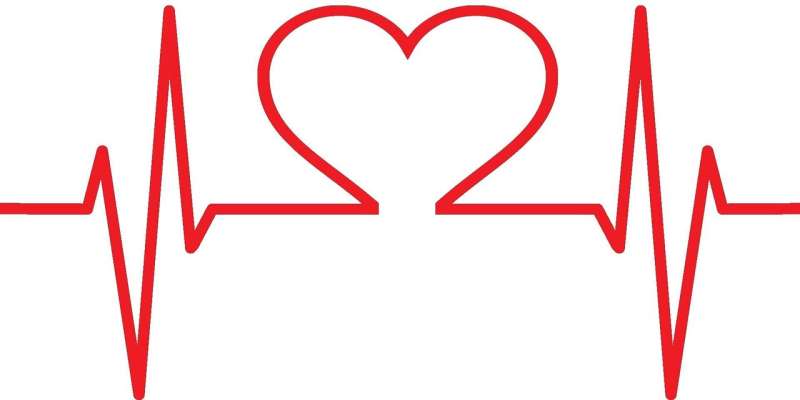Young, Black adults had a higher risk of heart disease, worse hospital outcomes

During a decade of study between 2007 and 2017, young, Black adults in the U.S. (mean age of 31 years) experienced increased cardiovascular disease risk factors and worsened hospital outcomes, according to preliminary research to be presented at the American Heart Association’s Scientific Sessions 2021.
The study included a national sample of hospital inpatient records of more than 2.9 million young, Black adults ages 18 to 44 years (mean age of 31 years; 70.3% female). Researchers assessed contributing factors for heart disease among this group by using the U.S. Department of Health and Human Services’ Agency of Healthcare Quality and Research National Inpatient Sample, large, publicly available, longitudinal hospital inpatient databases, They compared the records of more than 1.3 million Black adults hospitalized in 2007 to the records of nearly 1.6 million Black adults hospitalized a decade later, in 2017.
Compared to 2007, the 2017 data revealed a rising burden of traditional cardiometabolic conditions, congestive heart failure, chronic pulmonary disease (lung or respiratory system), coagulopathy (bleeding disorder), depression and notable reductions in abuse of alcohol and drugs. These risk factors tended to occur more frequently and at a younger age in the 2017 data, compared to the 2007 data. Compared to the 2007 cohort, the 2017 group were:
- Younger (mean age of 30 years vs. 31 years in 2007), male (30.4% vs. 28.8% in 2007) patients with higher non-elective/emergency hospital admissions (76.8% vs. 75% in 2007);
- Three times more likely to have type 2 diabetes with chronic complications (5.4% in 2017, compared to 1.7% in 2007);
- More than twice as likely to have obesity (16.6% in 2017, compared to 8.1% in 2007); and
- Two times more likely to be tobacco smokers (27.4% in 2017, compared to 13.3% in 2007).
“Many potential factors seem to be responsible for these findings, including less frequent annual wellness visits; absent or insufficient screening measures at a younger age; genetics; stress; an unhealthy diet; a lack of awareness or insight into a healthy lifestyle; and even financial constraints,” said Ankit Vyas, M.B.B.S., M.D., the study’s senior author and an internal medicine resident at the Baptist Hospitals of Southeast Texas in Beaumont, Texas.
Researchers also examined outcomes of hospitalizations in the two data sets that included death, hospital discharge status, and major adverse heart and brain conditions such as heart attack, heart rhythm disturbances, sudden cardiac death and stroke. Despite advancements in medications and improved screening and diagnostic techniques in the last decade, in-hospital outcomes worsened over the course of the 10-year study period.
Researchers found a nearly 20% increase in the risk of major adverse cardiac events among young, Black adults from 2007 to 2017, including:
- a 30% increased risk of heart attack and heart rhythm disturbances;
- a 90% increased risk of a blood clot in one of the big arteries (pulmonary) of the heart;
- a 150% increased risk of out-of-hospital cardiac arrest;
- a 200% increased risk of cardiogenic shock; and
- a 50% increased risk of stroke.
“Young, Black adults should be encouraged to have regular primary care visits and get annual wellness checkups so any health abnormalities may be noticed at earlier stages, before there are serious health consequences such as a heart attack or stroke,” noted Vyas. “Young people must also be aware of factors that can cause heart disease and understand that heart disease can lead to disability and premature death. Prevention is an important first step.”
Vyas noted that incorporating regular physical exercise, sports participation and healthy food options such as fruits and vegetables into the daily lifestyle can help to prevent or control of hypertension, type 2 diabetes and obesity, while meditation and yoga may help reduce depression. Abstinence from alcohol and tobacco use should be encouraged among young people.
“There should be more public awareness about the existence and availability of health counseling, health campaigns and health fairs that can be accessed through nonprofit organizations, charitable community service and the physician” he said. “Young people should be encouraged to work with case managers, social workers, physicians, nurses, pharmacists or other health care professionals to learn more about affordable options that may be available to them.”
Limitations of the study include that it was based on data from a population at a specific time and did not include follow-up on data, medication history or lab findings. In addition, information about the burden and impact of electronic cigarettes and vaping or the use of recreational cannabis (marijuana) on the cardiovascular health of young adults was not included in the analysis.
Source: Read Full Article
